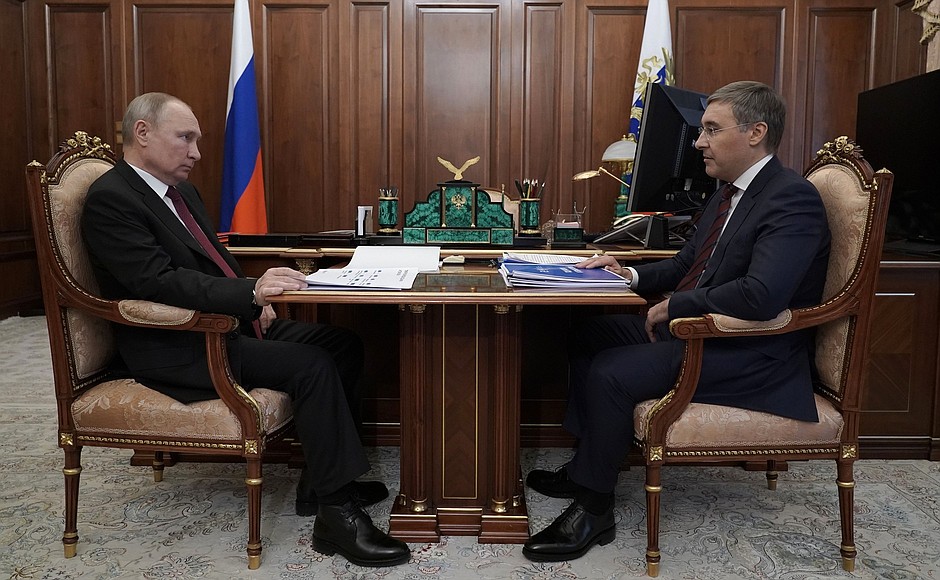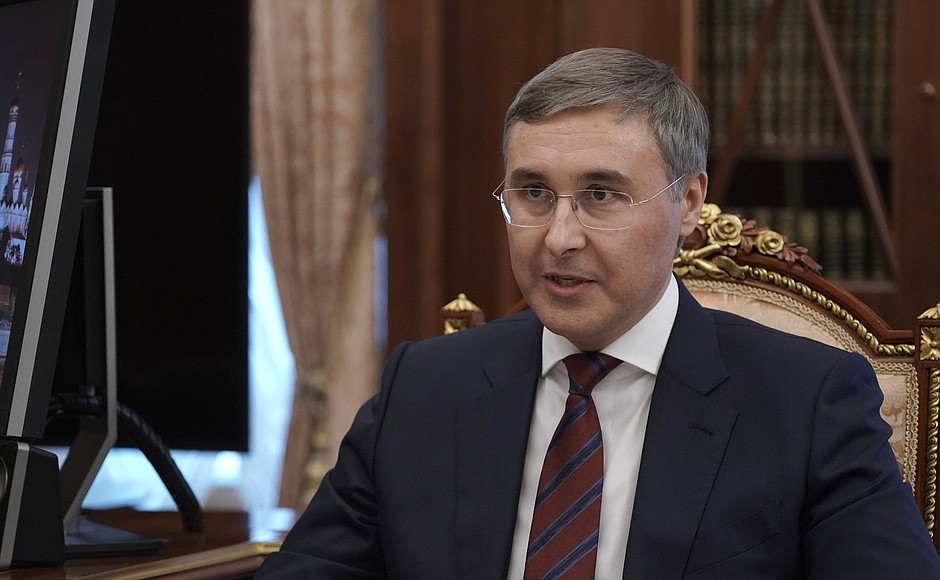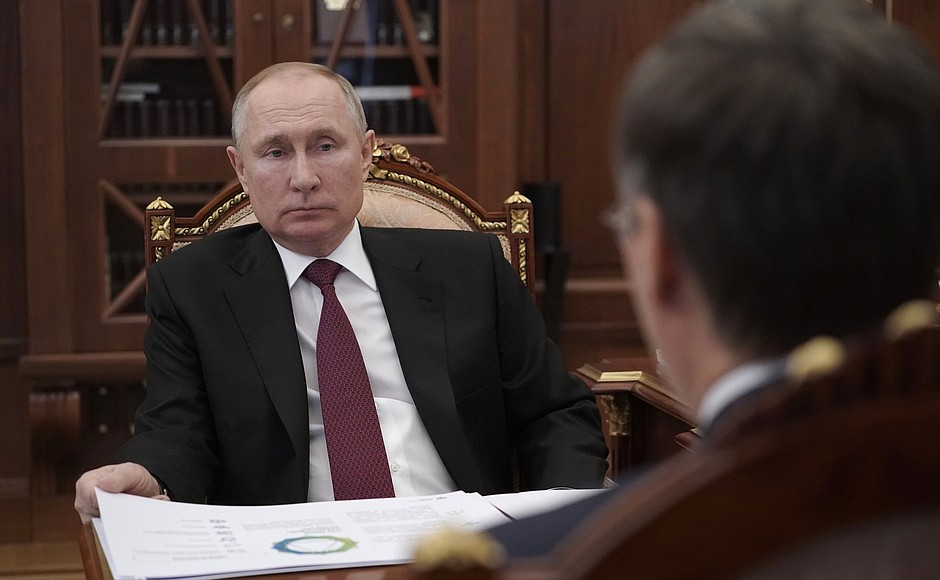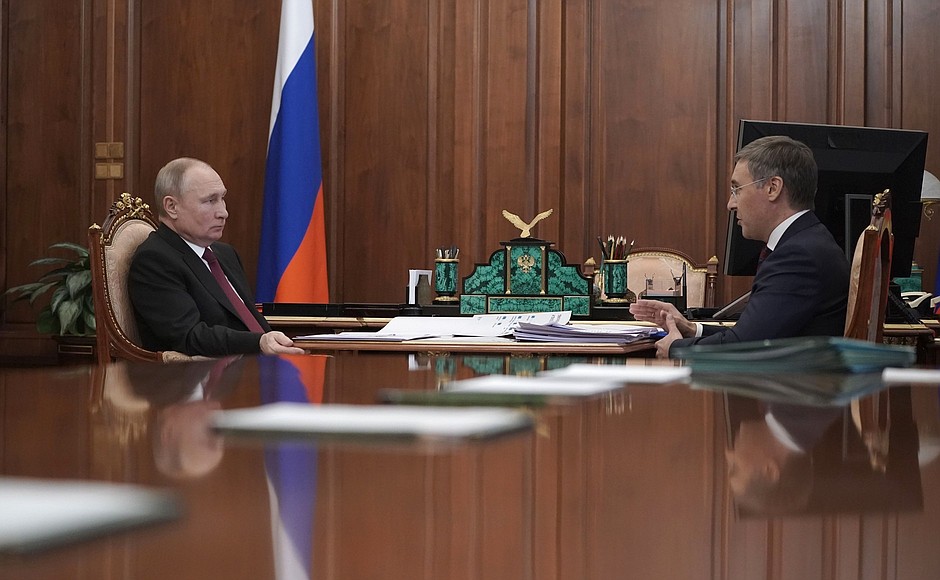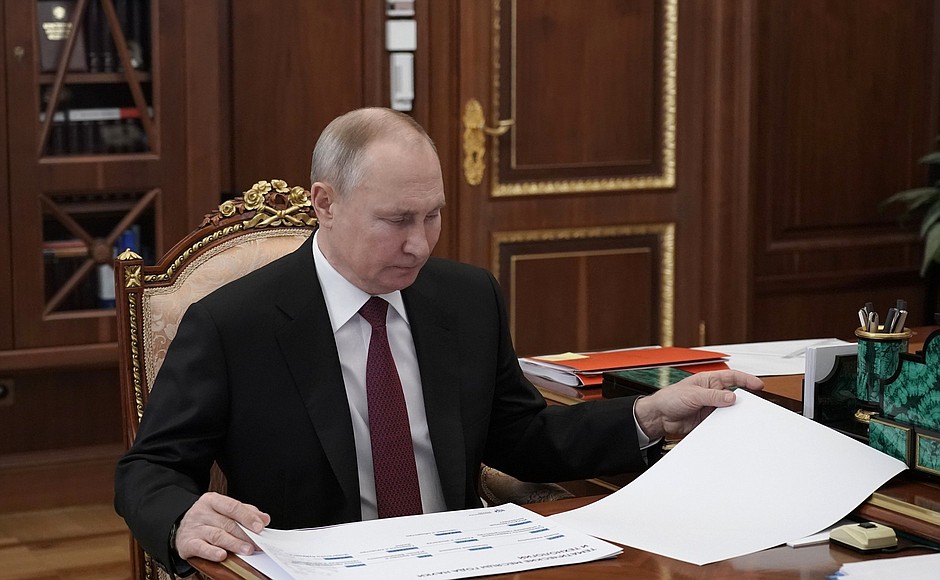President of Russia Vladimir Putin: Mr Falkov, 2021 has been declared the Year of Science and Technology. What is your vision for it as the head of the relevant agency?
Minister of Science and Higher Education Valery Falkov: Thank you, Mr President. I have prepared a short presentation.
First of all, I would like to thank you for declaring 2021 the Year of Science and Technology. I would like to mention that the VTsIOM public opinion centre recently held a special poll on the Year of Science and Technology. In particular, it asked about the importance of developing science and technology in the country. The respondents ranked it 9.2 on a 10-point scale. In other words, an almost absolute majority noted the fundamental importance of this.
See also
As for us, we looked at the situation from the viewpoint of national goals and we have prepared a plan. A special feature of this year will be that we have assigned a theme to each month; we looked at the country’s history and current areas of scientific endeavour. It is obvious that the theme for April is Space Exploration. The theme for May is New Challenges and Threats. Security; Spatial Connectivity and Development for July; Environment and Climate for August; Genetics and Quality of Life for September, and so on. We will end the year in December with The Individual and Society.
I would like to add that when we considered a symbol for the Year of Science, we looked at the country’s history and, of course, its connection to the current age. We have chosen the armillary sphere for several reasons.
First and foremost, an armillary sphere crowns the main tower of the Kunstkamera, the cradle of Russian science currently known as the Museum of Anthropology and Ethnography. On the other hand, the sphere is a stylised model of an atom. As we know, the nuclear project largely predetermined not only the world order but also the development of our country in the 20th century. And thirdly, it is a reference to the present if we look at it at an interdisciplinary angle.
I would like to elaborate on one issue: there are some other data on the VTsIOM survey. Involving talented youth in the sphere is a priority goal of the Year of Science and Technology. The state has been doing a lot in recent years. As you know, the reputation of scientists is growing. According to the same VTsIOM survey, 59 percent of respondents said that last year the reputation of scientists in Russian society increased. Of course, this is mostly due to our success with the vaccines, but we can see the same movement in other fields as well.
However, there is a systemic problem related to the fact that unfortunately we do not have one clear definition or regulated legal status of young scientists either in the federal or regional law. There are different interpretations in bylaws, which impedes focusing state support measures.
This is why we have held consultations with our colleagues from the Government and the Presidential Executive Office and have composed a request for you. We would like to ask you to support us in amending the law on science so that it would envisage the definition and the legal status of young scientists as a set of rights, obligations and, which is very important, guarantees. We believe this will set right the system of state support measures for young scientists and increase the efficiency of their implementation.
This is a moment of principle importance. If we have your support, we will try to make amendments to law as soon as possible and help young scientists during the Year of Science and Technology so that this job and sphere become even more prestigious.
Vladimir Putin: Good. I believe the state should take care of scientists of all generations and all ages, but I base this on the fact that beginners in research need special support from the state because they are beginners and are just taking their first steps.
You know, I have looked through your plans. As I see, in August you plan to focus on the climate and the environment. This is a most important field for all people in general around the world and in Russia. Would you please elaborate on this?
Valery Falkov: Yes, I would like to inform you separately, I prepared another short presentation. We are launching a new ambitious scientific and educational pilot project to create carbon testing sites.
Vladimir Putin: What is that?
Valery Falkov: Carbon testing sites are special territories and areas. We chose seven pilot regions that are geostrategically different regions, including Kaliningrad Region, Sakhalin Region, the Chechen Republic, Krasnodar Territory, and Sverdlovsk, Novosibirsk and Tyumen regions.
What tasks do we want to accomplish in this case? We want to develop methods for measuring the fluxes of the main greenhouse gases – this is fundamentally important – carbon dioxide, methane, nitrous oxide, and so on. Why is this important? Because today all countries, as part of the decarbonisation of their economies on the climate agenda, are working to have their own systems for recording greenhouse gases.
For our country this is a matter of national security. It is important to have our own non-discriminatory system for measuring the balance of greenhouse gases, that is, how and where they are emitted and absorbed.
Through such testing sites, created in different regions and in different localities, with the participation, on the one hand, of experienced scientists – as defined in your Executive Order, we surely rely on the full power of our academic institutions and leading universities. On the other hand, so that this is not a purely academic matter, we have invited private investors, and we have a number of companies such as Gazprom Neft, SIBUR, Sinara, and a number of others that have already responded, and they are ready to invest in these testing sites.
And thirdly, young people generally have major environmental demands today, we understand that work here will be in demand among young people, so we also want to teach at the same time so that students can study and practice here. Moreover, not only students of environmental management and ecology, biology, or soil science departments, but it is equally important that the topic of decarbonisation is an economic topic, therefore future lawyers, legal regulators and economists will also be involved.
I will report to you later. We would like to build several dozen such test sites all over the country. My colleague governors, as soon as they learn about it, are eagerly joining us. We have enough resources and support from businesses. I just wanted you to know, because it is crucially important, that as many people as possible are involved.
Each such test site will also have a so called “carbon farm” because experts say that it is going to develop into an entire industry providing a lot of jobs by 2030. There are forests being cultivated especially for absorbing greenhouse gases.
We will try to work in this area dynamically with other regions and authorities.
Vladimir Putin: No doubt, decarbonisation is a most important activity not only in the world but in this country too. It is only important not to use it as an instrument for achieving some mercenary economic or other objectives, not to use this to our country’s detriment.
And I agree with you that we undoubtedly need to attract not just, as we call it, true scientists, but also practical people, who understand what is happening in real life.
We know what the European countries and the southern United States faced quite recently when windmills froze and defrosting them required huge quantities of energy from sources that in some places was forbidden for power generation as a matter of principle.
This is why it is very important to combine scientific knowhow and the needs of the contemporary economy, look into the future and cooperate.
No doubt, it should be done together with colleagues not only inside the country, but also, primarily, with the EAEU and CIS states, and generally with all the colleagues interested in the results of the joint work.
It is a very interesting field.
Valery Falkov: I will keep you posted. This is how we see it. The sites are open and our colleagues, foreign students and researchers, all of them should be aware that we are making calculations based on scientific data, and these calculations can and should be trusted, and we will exchange them. And it seems to me that this will be generally for the benefit of the entire humankind because science, as always, pursues global objectives.
Vladimir Putin: Thank you.
<…>
